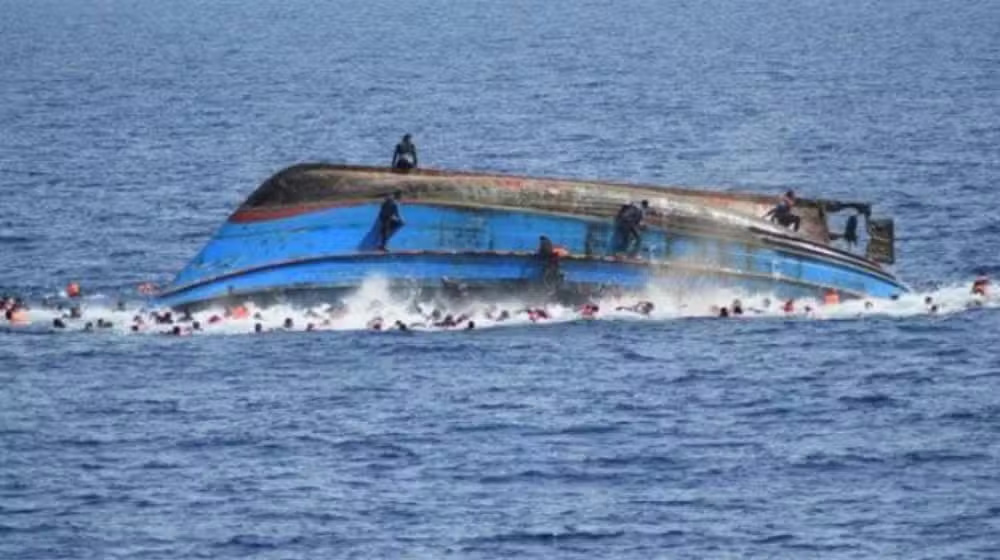On April 12, a horrific incident unfolded near the coast of Harawa, located close to the city of Sirte in Libya, when a migrant boat capsized, leading to the death of at least 11 people. Among the victims, four Pakistani nationals have been confirmed, as reported by the Pakistani embassy in Libya.
This tragic event highlights the global nature of the migrant crisis, which affects individuals from various countries seeking better opportunities abroad.
A Boat Capsizes Near Libya’s Eastern Coast
On April 12, 2025, a migrant boat, likely overloaded and ill-equipped for the perilous journey across the Mediterranean, capsized near the Harawa coast.
As authorities rushed to the scene, rescue teams were able to recover 11 bodies from the sea. The embassy’s swift response helped identify the victims and bring some closure to their families in Pakistan.
- Zahid Mahmood – Son of Liaqat Ali (from Gujranwala, Pakistan)
- Sameer Ali – Son of Raja Abdul Qadeer (from Mandi Bahauddin, Pakistan)
- Syed Ali Hussain – Son of Shafqat-ul-Hussnain (from Mandi Bahauddin, Pakistan)
- Asif Ali – Son of Nazar Muhammad (from Mandi Bahauddin, Pakistan)
The Pakistani embassy in Libya has played a crucial role in assisting the local authorities with the identification process. A team from the embassy traveled to Sirte, where the boat capsized, to support Libyan officials in identifying the deceased.
The Broader Context of the Migrant Crisis
The tragic boat capsizing near Libya’s eastern coast is a stark reminder of the humanitarian crisis affecting migrants in the Mediterranean. Each year, thousands of people attempt the dangerous crossing from North Africa to Europe, fleeing conflict, poverty, and persecution.
However, the country’s political instability and the ongoing conflict have made it increasingly difficult for migrants to find safe passage. The international community has responded to the ongoing migrant crisis in various ways, though efforts have often been insufficient in curbing the loss of life.
Organizations like the United Nations and the International Organization for Migration (IOM) are working to provide aid and support to migrants in need, but the crisis continues to grow as more individuals and families flee regions affected by war, instability, and extreme poverty.
In such tragic situations, the repatriation process can take time, but the embassy’s role is vital in coordinating these efforts. Additionally, Libyan authorities are continuing their investigations into the incident, aiming to prevent similar tragedies in the future.


